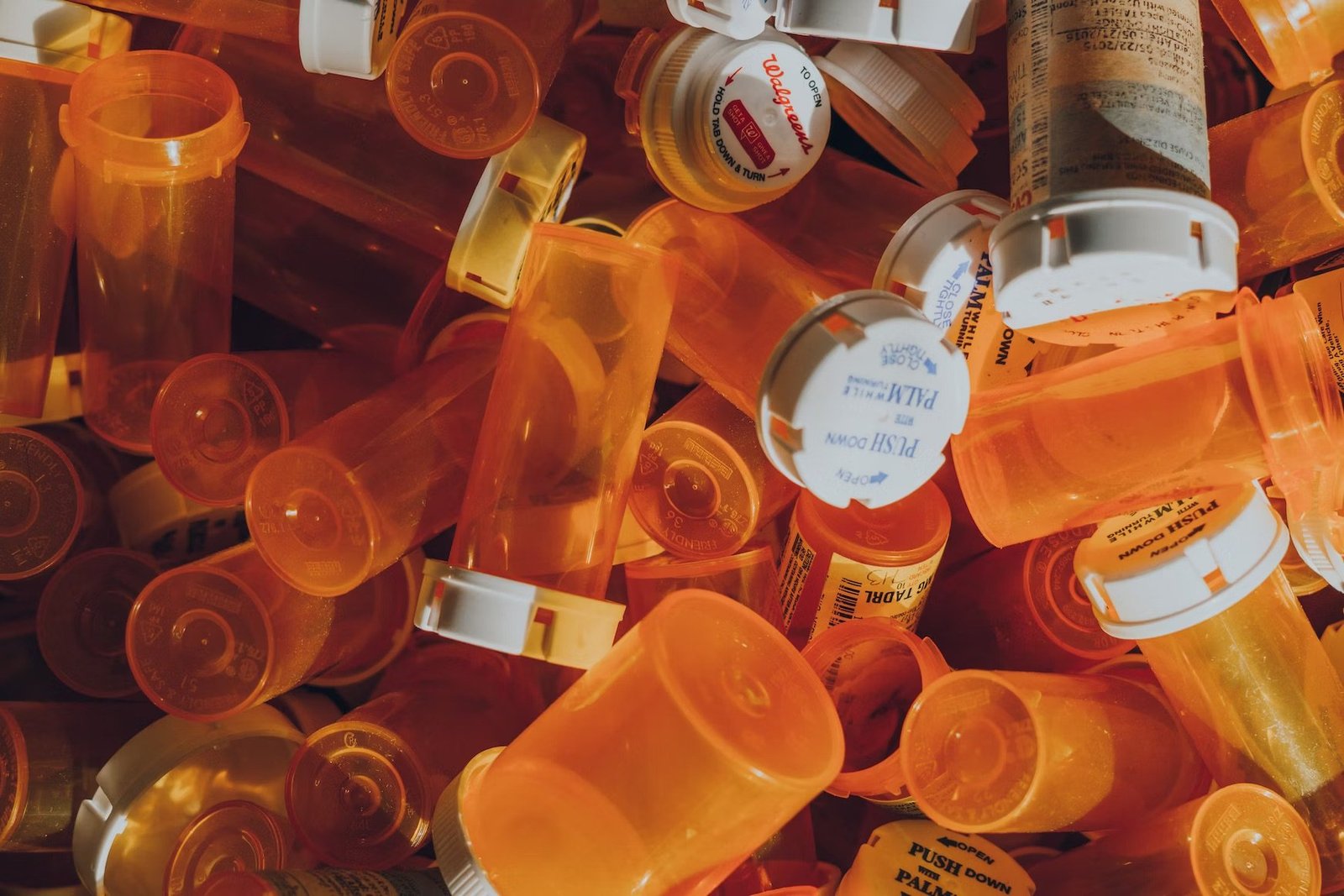Depression is a common and often debilitating mood disorder that affects millions. It is a significant global public health problem, and in the United States, 8.4% of adults and 17% of adolescents had at least one major depressive episode in 2020, with many of these episodes causing severe impairment (1). It is especially prevalent among women, adolescents and young adults, and people of two or more races (2). Depression, in its many forms, is most often treated with medication or talk therapy, with a combination of the two being typical. While these treatments work well for many people with depression, it can take a lot of time for them to start to improve an individual’s depression. Antidepressants typically take four to eight weeks to work, and often cause many negative side effects during this waiting period.

Treatment-Resistant Depression
Unfortunately, and though it is not often talked about in public discourse surrounding mental
health, medication and therapy are sometimes not enough. Many people with depression suffer from symptoms that seem to be unresponsive to typical courses of treatment, which can be very frustrating and exacerbates the feelings of hopelessness that so often come with this disorder.
Though it is not known for certain what causes depression, a prevailing theory is that it is due to an imbalance of neurotransmitters in the brain, which is why SSRIs – Selective Serotonin Reuptake Inhibitors – are the most common type of antidepressants prescribed to those diagnosed with depression (as well as other disorders). Serotonin is often described as one of the “happy” or “feel-good” chemicals. It is a chemical produced by the intestines and the brain, and it plays a large role in regulating mood and other important functions (4), After transmitting messages in the brain, serotonin is reabsorbed by nerve cells in the brain. SSRIs prevent this reabsorption, or “reuptake,” which allows more serotonin to remain active in the brain. SSRIs, therefore, are meant to increase the levels of this feel-good chemical in the brain. 5 While there is much evidence to back up the efficacy of SSRIs, they simply do not seem to work for some people, (which brings up the idea that chemical imbalances might not be the only cause of depression – an important topic that deserves its own discussion). There is a clinical term for this: Treatment-Resistant Depression (TRD). TRD has had conflicting definitions in psychiatry, but it typically describes an individual with Major Depressive Disorder (MDD) who has not responded to at least two different antidepressants (6), Shockingly, about 30% to 40% of people with MDD do not respond adequately to antidepressants (7).
Of course, being described as having TRD requires that a person was compliant with their prescribed treatment of antidepressants, in terms of dose and duration. Furthermore, there are a variety of factors that make TRD a complex issue when it comes to treatment, including having multiple psychiatric diagnoses – for example, having anxiety in addition to depression, which is the case for about half of those diagnosed with depression 8 – other medical issues, and type of depression. Factors such as family history, age, and severity can be variables in TRD, and there is also the possibility of misdiagnosis, which can change the treatment approach (9).
Alternative Treatments
Having TRD is exhausting and incredibly discouraging, especially since taking the initiative to get treatment for depression is immensely difficult to do in the first place because of its symptoms, such as lack of energy, hopelessness, and difficulty concentrating, not to mention barriers to accessing healthcare. Fortunately, there are actually many alternative treatments for depression that, while not as well-known, have been shown to be life-changing for many sufferers of TRD.
There are more traditional pharmacological approaches that are used in response to TRD, such as Lithium, thyroid hormones, and second-generation (atypical) antipsychotics (10). These are all taken as pills. However, there are also several other forms of alternative treatments that are becoming more frequently used, namely, various types of neurostimulation, and a novel drug therapy called Esketamine.
One common type of neurostimulation that is commonly known is Electroconvulsive therapy (ECT). ECT is considered to be the best and most well-established option when it comes to alternative treatments for depression. ECT works by inducing a certain type of seizure through electrical pulses to the brain while under anesthesia. This treatment has a lot of fear and stigma surrounding it, as it has often been portrayed in the media as a punishment; there is some validity to this fear, as it is invasive and risks side effects such as memory loss (11). However, it is well supported by research and has provided relief for many people with TRD (12). Magnetic Seizure Therapy (MST) is a similar treatment, where a powerful magnet is used to cause seizures (13).
Another type of neurostimulation that is becoming more commonly used is Repetitive Transcranial Magnetic Stimulation (rTMS). This treatment essentially uses a large magnet, which is placed near the head, and targets areas in the brain typically associated with depression. It does not cause a seizure and is noninvasive, with minimal side effects (14). Surgical procedures also exist that address TRD, including Deep Brain Stimulation (DBS) and Vagus Nerve Stimulation (VNS).
A newer treatment that has been gaining traction recently is called Esketamine. Esketamine is related to ketamine, which is a hallucinogen that is commonly used as an anesthetic. It is in a class of medications called NMDA antagonists (15), and was approved by the FDA in 2019 (16). It is sold under the name Spravato as a nasal spray and is administered in a medical office where the patient is monitored (17). Esketamine relieves the symptoms of depression quickly, and its effects last for about a week (18).

Conclusion
Depression can be crippling. However, there are so many options for treatment beyond just antidepressants. Many of these treatments are new and more research is necessary to fully understand them. Much like depression itself, it is not fully understood why some of these treatments help, and naturally, different treatments work for different people. The good news is: they do help! This list is non-exhaustive and does not even address the many modalities of psychotherapy that can be life-changing to those living with depression. It can be discouraging to try multiple medications and treatments and feel like nothing will ever work, and yet, there is so much hope in the knowledge that there are numerous options that exist and that are even now being developed to aid with depression and other mental illnesses.
~ Anneka Vander Wel

Anneka is a Seattle native currently living in sunny Los Angeles. She earned a BA in Interdisciplinary Studies where she discovered her passion for topics including mental health and wellness, sociology, theology, history, and psychology. When she’s not at Disneyland, baking, crafting or practicing (emphasis on practicing) her musical instruments, you can find her reading a good book.
1 U.S. Department of Health and Human Services. (2022, January). Major Depression. National Institute of Mental Health. Retrieved from https://www.nimh.nih.gov/health/statistics/major-depression
2 U.S. Department of Health and Human Services. (2022, January). Major Depression. National Institute of Mental Health. Retrieved from https://www.nimh.nih.gov/health/statistics/major-depression
3 U.S. Department of Health and Human Services. (2023, April). Depression. National Institute of Mental Health. Retrieved from https://www.nimh.nih.gov/health/topics/depression
4 MediLexicon International. (2022, October). Serotonin: Functions, normal range, side effects, and more. Medical News Today. Retrieved from https://www.medicalnewstoday.com/articles/232248
5 SSRIs. Cleveland Clinic. (2023, March). Retrieved from https://my.clevelandclinic.org/health/treatments/24795-ssri
6 Kornstein SG, Schneider RK. Clinical features of treatment-resistant depression. J Clin Psychiatry. 2001;62 Suppl 16:18-25. PMID:11480880.
7 Kornstein SG, Schneider RK. Clinical features of treatment-resistant depression. J Clin Psychiatry. 2001;62 Suppl 16:18-25. PMID:11480880.
8 ADAA. (n.d.). Facts & Statistics: Anxiety and Depression Association of America, ADAA. Anxiety Disorders – Facts & Statistics. Retrieved from https://adaa.org/understanding-anxiety/facts-statistics
9 Kornstein SG, Schneider RK. Clinical features of treatment-resistant depression. J Clin Psychiatry. 2001;62 Suppl 16:18-25. PMID:11480880.
10 Voineskos D, Daskalakis ZJ, Blumberger DM. Management of Treatment-Resistant Depression: Challenges and Strategies. Neuropsychiatr Dis Treat. 2020 Jan 21;16:221-234. doi: 10.2147/NDT.S198774. PMID: 32021216; PMCID: PMC6982454.
11 Voineskos D, Daskalakis ZJ, Blumberger DM. Management of Treatment-Resistant Depression: Challenges and Strategies. Neuropsychiatr Dis Treat. 2020 Jan 21;16:221-234. doi: 10.2147/NDT.S198774. PMID: 32021216; PMCID: PMC6982454.
12 Voineskos D, Daskalakis ZJ, Blumberger DM. Management of Treatment-Resistant Depression: Challenges and Strategies. Neuropsychiatr Dis Treat. 2020 Jan 21;16:221-234. doi: 10.2147/NDT.S198774. PMID: 32021216; PMCID: PMC6982454.
13 Voineskos D, Daskalakis ZJ, Blumberger DM. Management of Treatment-Resistant Depression: Challenges and Strategies. Neuropsychiatr Dis Treat. 2020 Jan 21;16:221-234. doi: 10.2147/NDT.S198774. PMID: 32021216; PMCID: PMC6982454.
14 Voineskos D, Daskalakis ZJ, Blumberger DM. Management of Treatment-Resistant Depression: Challenges and Strategies. Neuropsychiatr Dis Treat. 2020 Jan 21;16:221-234. doi: 10.2147/NDT.S198774. PMID: 32021216; PMCID: PMC6982454.
15 Manji, H., & Hayes, J. (2021, September 14). Novel drug therapies could tackle treatment-resistant depression. Scientific American. Retrieved from https://www.scientificamerican.com/article/novel-drug-therapies-could-tackle-treatment-resistant-depression/
16 FDA. (2019, March 5). FDA approves new nasal spray medication for treatment-resistant depression; available only at a Certified Doctor’s Office or clinic. U.S. Food and Drug Administration. Retrieved from https://www.fda.gov/news-events/press-announcements/fda-approves-new-nasal-spray-medication-treatment-resistant-depression-available-only-certified
17 FDA. (2019, March 5). FDA approves new nasal spray medication for treatment-resistant depression; available only at a Certified Doctor’s Office or clinic. U.S. Food and Drug Administration. Retrieved from https://www.fda.gov/news-events/press-announcements/fda-approves-new-nasal-spray-medication-treatment-resistant-depression-available-only-certified
18 Voineskos D, Daskalakis ZJ, Blumberger DM. Management of Treatment-Resistant Depression: Challenges and Strategies. Neuropsychiatr Dis Treat. 2020 Jan 21;16:221-234. doi: 10.2147/NDT.S198774. PMID: 32021216; PMCID: PMC6982454.

